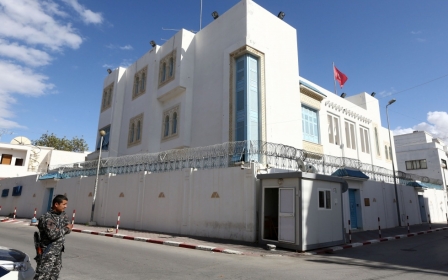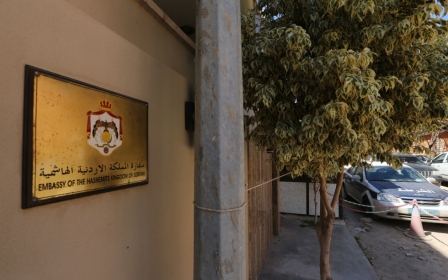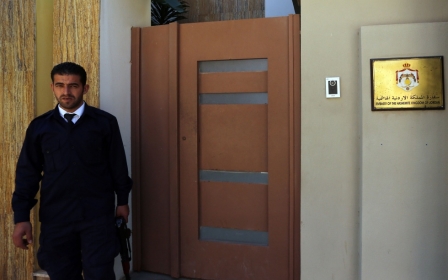Kidnapped Tunisians freed in Libya

An unidentified source told AFP that the pair were in good health.
Diplomats in Tripoli say militias which fought to topple the Muammar Gaddafi regime in the 2011 uprising often carry out kidnappings to blackmail other countries into releasing Libyans they hold.
The Tunisian embassy staff abductions came during a string of attacks targeting diplomats in the capital earlier this year.
Embassy employee Mohamed ben Sheikh was kidnapped in Tripoli on 21 March while diplomat Al-Aroussi Kontassi was seized 17 April.
At the time, Tunis said a militant group was behind the abductions and was demanding the release of Libyans jailed in Tunisia for their role in a deadly "terrorist operation" that took place three years ago.
On Sunday, the Tunisian embassy source said the pair were freed "thanks to negotiations" but that his government did give in to the demands of the kidnappers.
Jordan's ambassador to Libya has also been kidnapped and Portugal's embassy was attacked by gunmen.
Even ahead of the nationwide offensive that rogue ex-general Khalifa Haftar launched in May which has increased instability in the country, lawlessness in Libya since the 2011 uprising had given rise to favourable conditions for potential kidnapers. As militias successfully used foreign diplomats to achieve the release of prisoners, analysts said it was likely that kidnappings would continue.
“Unless the Libyan government and international community take responsibility for the dire state of instability, it is likely this cycle of kidnappings will continue for months, or even years, to come,” Mohamed Eljarh, Libyan analyst for Foreign Policy, told Middle East Eye.
Middle East Eye propose une couverture et une analyse indépendantes et incomparables du Moyen-Orient, de l’Afrique du Nord et d’autres régions du monde. Pour en savoir plus sur la reprise de ce contenu et les frais qui s’appliquent, veuillez remplir ce formulaire [en anglais]. Pour en savoir plus sur MEE, cliquez ici [en anglais].




